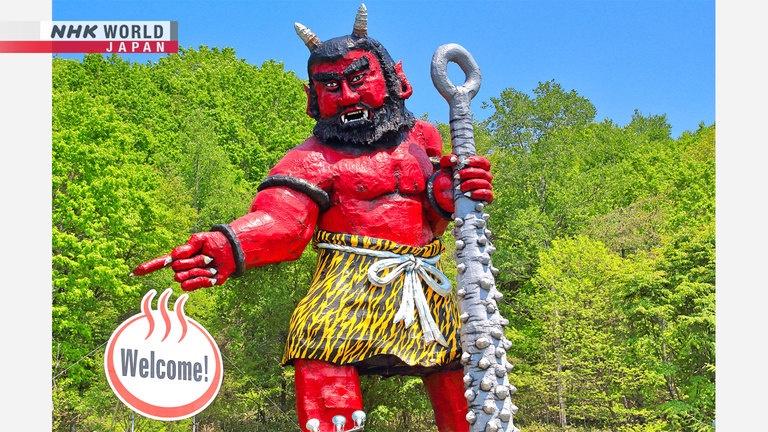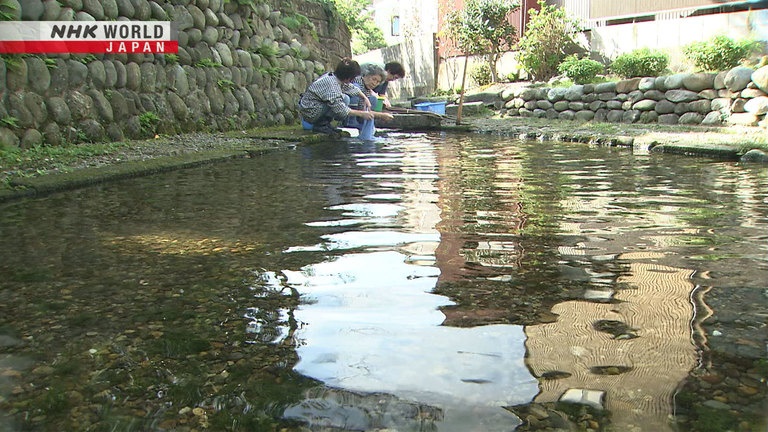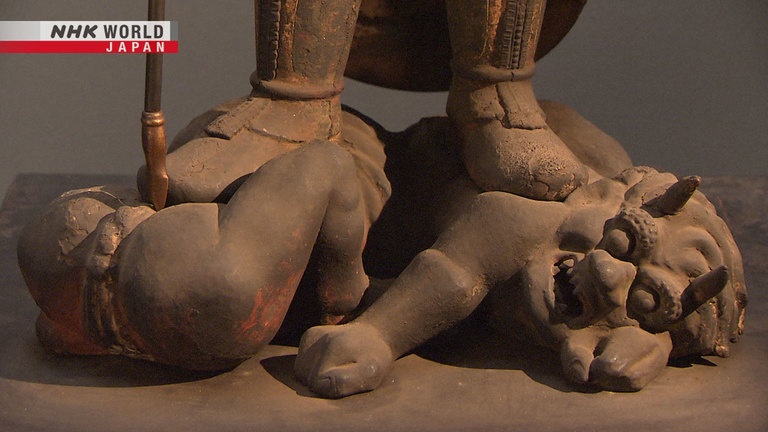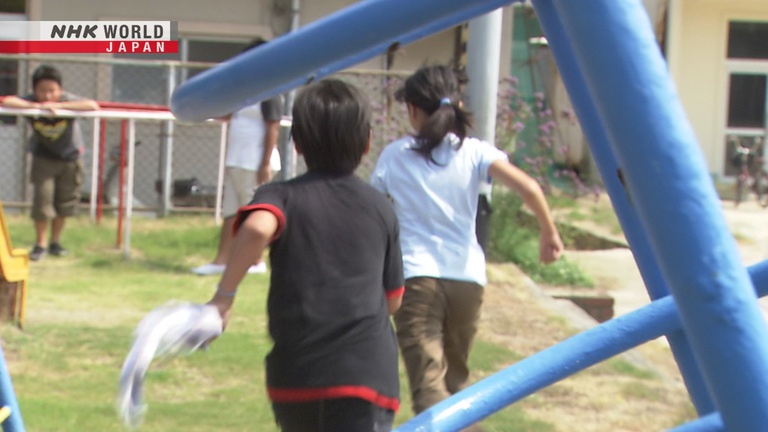Oni
The Japanese language is rich in words and expressions influenced by nature, history and culture. This episode explores words and phrases inspired by Oni: demons, ogres and evil spirits that are a fixture of Japanese folklore. From his home in Kyoto Prefecture, poet and literary translator Peter MacMillan guides us through these words and the culture behind them.




Transcript
"Yukigesho."
"Karakurenai."
The Japanese language is rich in unique expressions that reflect nature and culture.
Magical Japanese.
Today's theme is "oni."
They're the demons, ogres, and evil spirits that are a fixture of Japanese folklore.
They're in the public eye again, thanks to the hit comic and anime series "Demon Slayer: Kimetsu no Yaiba."
We'll explore words and phrases inspired by these fearsome beings.
Hello, I'm Peter MacMillan.
In Japan, most people think of something like this when they hear the word "oni."
A being with horns on its head, with red or blue skin, the top half of their body naked, and wearing a loin cloth, or "fundoshi," around their waist.
"Oni" are always depicted as being extremely strong and terrifying.
Let's have a look at some expressions related to this.
"oni ni kanabo."
A "kanabo" is a metal club.
The phrase means that something strong has been reinforced or that one is fully prepared.
It's used positively to express confidence or a sense of relief.
"oni ni kanabo."
"oni no inuma ni sentaku."
This literally translates to "do the laundry," or, "'sentaku' while the 'oni' is away."
It means to relax or take a breather while someone you're frightened of or feel uneasy around is gone.
The word "sentaku" in Japanese does not just mean laundry, but also refers to a time to refresh your mind and body.
There is an expression "laundry of life," "inochi no sentaku," which means that something is so enjoyable that it extends your life.
"oni no inuma ni sentaku."
The word "oni" came into common use in the Heian Period.
It comes from the Japanese word "on," which means "something that hides its appearance or cannot be seen."
And then it turned into the word "oni."
"Oni" are not always depicted as monsters or ghosts.
Sometimes, they are depicted as spiritual beings.
The true nature of an "oni" as a spiritual being is actually a human.
People became an "oni" by holding grudges and being jealous of others.
There are many ancient Japanese stories about people turning into "oni."
The word "oni" is still used to describe the negative emotions of resentment, anger, and anxiety.
"gishin anki."
"Gishin" is "suspicion," "an" means "darkness," and "ki" is another way to say "oni."
"Gishin anki" is used when you're so full of suspicion that you doubt everything and are overwhelmed by fear.
"gishin anki."
If you have a doubt, you might think that there are "oni" hiding in the dark.
In relationships, it's important to trust each other and not to have doubts.
Yet, at the same time, people sometimes need to behave as if they were "oni" in order to teach others.
"kokoro o oni ni suru."
A literal translation is "make your heart an 'oni.'" Similar to the English expression,"harden your heart,"
it means to act insensitively towards someone even though, you actually sympathize with them.
It's not done out of spite, but rather for the other person's own good.
"kokoro o oni ni suru."
"amanojaku."
This refers to a person who makes a point of acting contrary.
Amanojaku is the name of an evil "oni" in Japanese folklore who mimics people and goes against their wishes.
So take care not to behave like an Amanojaku, or you might just find yourself in a similar position.
"amanojaku."
In Japan, the deeds of "oni" can also be found in nature.
Have you heard of the Onioshidashi Park in central Japan?
The landscape there was created by lava flowing from Mount Asama when it erupted in 1783.
The name comes from the image of an "oni" raging at the crater of the volcano and pushing out, "oshidasu," the lava.
The rugged lava rock that spreads out over the area resembles the hell where "oni" reside.
Things that are unknown to humans are sometimes called "oni," to express awe.
The next phrase refers to something that has superhuman abilities.
"kisai."
"Ki" means "oni," and "sai" means "talent."
"Kisai" describes a genius or someone with incredible talent.
It implies a brilliance that leans toward the unusual and the subversive.
"kisai."
"Oni" still play an important role in contemporary Japanese life.
"Oni wa soto! Fuku wa uchi."
This spell is used on Setsubun when throwing beans.
It means "'Oni' get out, good fortune come in!"
Let's take a look now at the Japanese tradition of Setsubun.
Setsubun is a festival held before the first day of spring, which marked the start of the new year in the old Japanese calendar.
People would drive away evil and pray for good health.
Traditions vary by region, but they typically involve throwing roasted soybeans at a person wearing an "oni" mask and eating the same amount of beans as one's age.
The word "oni" is also found in child's play.
In Japan, the game of tag is called like this: "onigokko."
One person plays the "oni" and chases the others.
If you are caught, you become the "oni."
This game is still popular with children today in Japan.
"Onigokko," or tag, is lots of fun, but please be careful to avoid injuries.
"onigokko."
To the Japanese, the "oni" are the symbol of fear and awe.
They are indeed frightening, but they're always close to us.
Today we had a look at the mysterious relationship the Japanese have with "oni."
Are you a fan of "oni" now?
See you next time.
Bye!